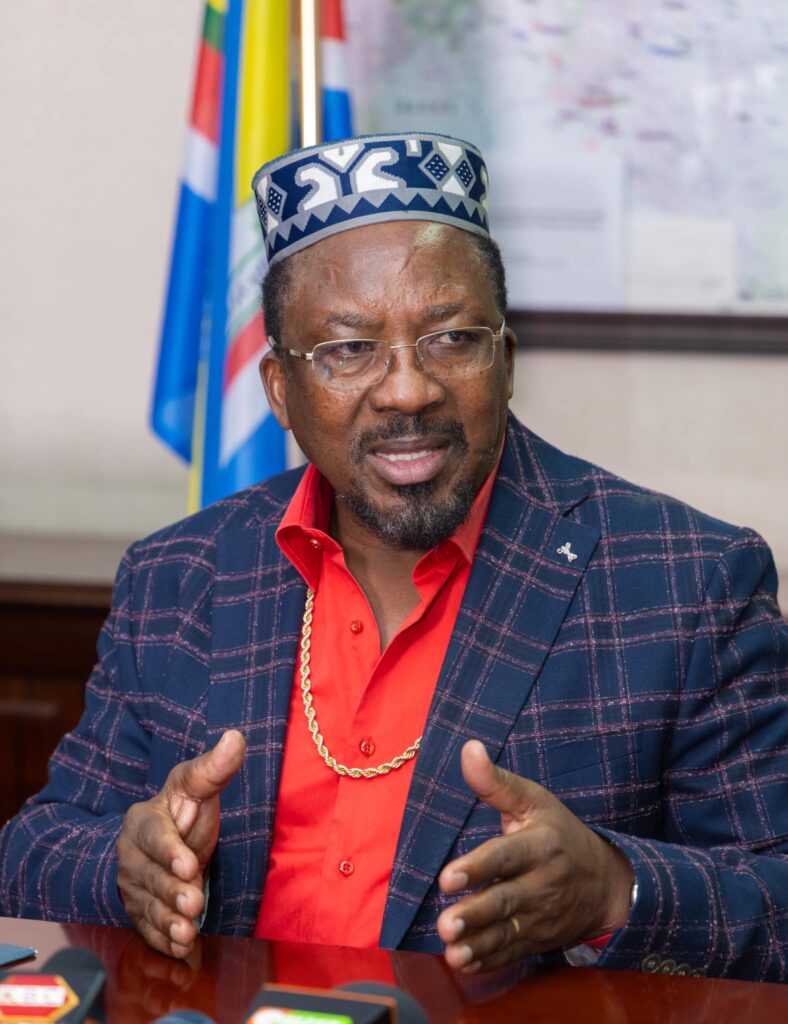Pastor James Ng’ang’a has weighed in on viral claims suggesting the world will end on August 2, 2025, dismissing them as false and misleading. Speaking during a sermon at his Neno Evangelism Centre, the outspoken preacher openly questioned how anyone could declare the exact day of the world’s end, insisting such predictions contradict scripture.
“Ati dunia inaisha tarehe mbili? Hata Yesu alisema hajui siku, sasa wewe prophet unajuaje?” Pastor Ng’ang’a asked, drawing laughter from the congregation. The statement, captured on video and widely circulated on Facebook and TikTok, quickly sparked both amusement and debate.
In typical fashion, Pastor Ng’ang’a didn’t hold back. With his signature blend of blunt honesty and satire, he joked that a certain prophet’s long beard might be clouding his vision, and perhaps a trim would help him think more clearly. While the jab entertained many online, others criticised it as disrespectful.
Despite the humour, Pastor Ng’ang’a’s message carried a serious warning: anyone making bold claims about the end of the world is misleading the public and should be questioned. He reminded his audience that scripture teaches no man—not even the Son—knows the day or hour.
Following the public backlash and confusion, the religious ministry allegedly connected to the prophecy issued a formal denial. The Ministry of Repentance and Holiness categorically rejected claims that its leader, Prophet David Owuor, had predicted an August 2 doomsday. In an official statement, the church called the rumours “false, baseless, and malicious,” accusing those spreading the claims of attempting to tarnish its image and mislead believers.
The ministry reiterated the biblical principle that no human can predict the exact timing of the world’s end, urging the public to stop spreading unverified and sensational messages. It also called for peace, unity, and discernment within the body of believers.
Social media platforms were flooded with responses, ranging from jokes and memes to more serious theological debates. Some Kenyans applauded Pastor Ng’ang’a for boldly calling out misleading messages, saying his grounded approach reflected a much-needed sense of clarity amid growing confusion. Others defended Prophet Owuor’s ministry, suggesting the rumours were fabrications and highlighting that many supposed doomsday predictions from across the globe have never come to pass.
In the broader context, the incident reflects a recurring cycle: false prophecies gain traction online, stir public fear or excitement, and are later debunked by the same religious institutions supposedly behind them. As social media continues to amplify both truth and falsehood, figures like Pastor Ng’ang’a play a central role in calling for accountability and caution in matters of faith.
Ultimately, both Pastor Ng’ang’a’s fiery comments and the ministry’s calm rebuttal converge on one point of agreement—no one knows the day the world will end. And until then, believers are urged to live righteously, think critically, and not be swayed by every viral prophecy that pops up on their screens.

